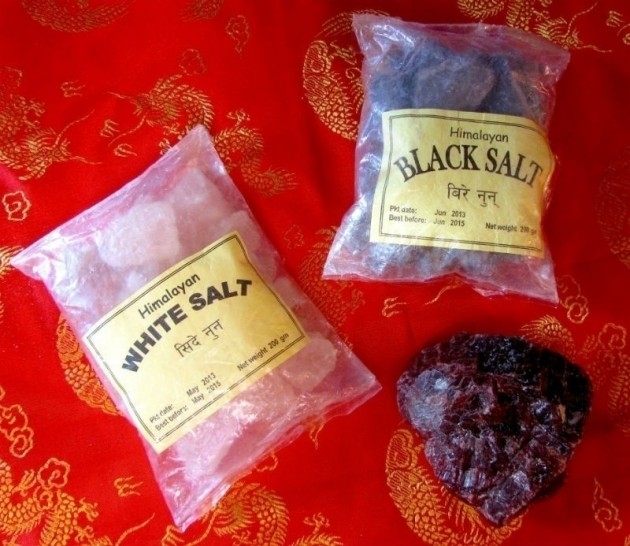I frequently encounter the question: "Junk food - how bad can it be if it's "only a rare occurrence"?" Previously, I've touched on this subject; today we will complete this discussion. The past article began as follows:
Often enough, during parties or meetings, or during my travels (in and out of the airplane...), I am asked questions resembling this: "what if I have a Big Mac just once in a while? or a Cheese Pizza once a week? Or chocolate just infrequently?"
It may seem easy to answer such questions, but is really isn't, especially when these meetings are too short to get into meaningful details. And every encounter is an opportunity to enhance someone's life by briefly introducing concepts of healthy living or at least creating a thought-provoking moment that can make a person pause to ponder the impact of our daily choices on the health of our internal and external ecology.
The last thing we want to do is "scare away" or alienate a new acquaintance, producing a greater distance between him or her and a better lifestyle. We don't want to be too "preachy" or evangelical about this topic, yet we don't want to insult someone's intelligence by being overly simplistic. I personally believe that people should be given credit for their ability to comprehend complex issues and make appropriate changes. Many doctors' attitude that "the patient will never change" stem from the inability of the doctors THEMSELVES to institute changes in their own lives, partially because they were not receptively exposed to the necessary education about health and nutrition that most of their patients were exposed to via books, internet, and popular magazines and other publications. This is why so many patients are light-years ahead of their doctors in regard to diet, supplements, innovative diagnostic tests and therapies, and home-based health measures. And the doctors are really not aware of this gap, so they just assume that there is no point in SIGNIFICANTLY educating their patients to prevent diseases by making truly-effective lifestyle alterations. They usually oversimplify the issues and avoid depth, leading the patient to conclude that these matters are not that important or obvious. As a result, we all tend to have easy excuses for our behavior, tending to justify to ourselves our daily "infringements" light heartedly, allowing their detrimental effects to accumulate...
At the same time, we don't want to induce guilt in anyone... But we must be honest and complete in assessing and responding to any question, even if it means that a certain level of complexity is required... People can immediately tell that someone is addressing them without integrity or with condescension. And if we must tell them about the nature of food addictions, we must avoid any judgmental tone- since EVERYBODY is or has been addicted to something sometime... the beginning of every positive change is achieved with the realization that something can be improved, and we all know that addictions are not a positive thing. So, one way to address the issue is to mention that these "offensive" foods are addictive just like alcohol or cigarettes are, to briefly explain the underlying mechanism for the addiction in each instance (using sound yet understandable science), and to demonstrate how even an occasional exposure to junk foods can perpetuate the addiction cycle. Then, quickly discussing the accumulative effects of metabolic toxicity and malnutrition is appropriate, if time allows it. Also, a mention can be made of the total physiological impact of consuming too many "bad" foods throughout the month, even if eating each individual food is a "rare occasion" on its own.
Another way is to instantly prove how the cumulative damage
of an unhealthy behavior affects our quality of life, is by simply quoting a pertinent scientific article that provides an excellent analogy to the point we try to convey. Analogies are not nearly as threatening as tackling an issue head on... Here it is:
"LONDON (Reuters) - Smokers who believe a few cigarettes a day don't do any harm will need to think again." (Wed Sep 21, 7:25 PM ET)
Norwegian scientists who studied the health records of 43,000 men and women have shown that even light smoking -- less than five cigarettes daily -- triples the risk of dying of heart disease or lung cancer.
"In both sexes, smoking 1-4 cigarettes per day was associated with a significantly higher risk of dying from ischaemic heart disease and from all causes, and from lung cancer in women," said Dr Aage Tverdal of the Norwegian Institute of Public Health in Oslo.
The study was published in the journal Tobacco Control. The researchers tracked the health and death records and smoking habits of the men and women, who had been screened for heart disease at the start of the study, from the 1970s to the 2002.
They found very little difference in the risk of dying from cancer, apart from lung cancer. Men who were light smokers were about three times more likely to die of lung cancer than non-smokers. In women the risk rose to five times higher.
The dangers of smoking are well documented. Previous research has shown that smokers die on average 10 years earlier than non-smokers but stopping, even in middle age, can halve the risk. It is also a risk factor for heart disease and stroke and raises the odds of developing age-related macular degeneration which is the leading cause of blindness in the elderly.
Tverdal and his colleague Dr Kjell Bjartveit, of the National Health Screening Service in Oslo and a co-author of the study, said health officials must emphasize more strongly that light smokers are also endangering their health."
This article strongly implicates a specific unhealthy behavior with the conditions known to emanate from it, even when the exposure to it is mild. This provides a great lesson: Every single detrimental behavior has unique physiological consequences that are characteristic to it even when you engage in it infrequently. Combine several such "infrequent behaviors" over a period of time - and the consequences may aggregate and interact in many negative ways, just as drugs interact in many negative ways. For example, if one behavior affects your liver's detoxification capabilities, another can become extremely dangerous since its attendant toxins will not be quickly removed, entering your brain or joints instead... The caffeine and other stimulants, white sugar, white flour, preservatives, artificial colorings, taste "enhancers," pesticides, hormones, antibiotics, food preparation-related toxins (i.e. high heat, as thoroughly explained in my double-CD, "Should We Cook Our Food?"), animal flesh and dairy components, and other chemicals we ingest or breathe or absorb through our skin all accumulate and interact adversely with each other, leading to failing health. Most (if not all) of them are addictive, because of their biochemical and metabolic influences on our cells, hormones, and organs. Therefore, if we consume them just "once a week" or even "just monthly" - the addiction cycle and its associated cravings are perpetuated, making our attempts to reduce our dependence on them a lot more difficult than avoiding them altogether would.
Can we "eat perfectly" ALL the time? Of course not... but would it not be better to compromise once in a while with foods that are not perfect, yet less detrimental than the junk foods listed? When we compromise, we can allow ourselves "natural foods" that have been "mildly altered" by humans, instead of indulging in truly artificial foods. Mild alterations consist of light stir-frying, cooking in water or steaming, when the foods are (at the most) hybridized (no GMO's) and externally resemble their natural origins (as in fruits and vegetables, nuts and seeds). A much greater compromise involves the ingestion of whole-grain, sugar-free baked foods (breads, bagels, granola, etc.), which don't resemble their natural state at all. These are addictive and physiologically damaging, for many reasons, but are not nearly as detrimental as the "junk foods" are. The worst foods for our body are also the most detrimental for our environment and our ecology! So whenever you "feel like compromising" - please be aware of the gradation, or levels of compromise available - and make your wisest choices!
"LONDON (Reuters) - Smokers who believe a few cigarettes a day don't do any harm will need to think again." (Wed Sep 21, 7:25 PM ET)
Norwegian scientists who studied the health records of 43,000 men and women have shown that even light smoking -- less than five cigarettes daily -- triples the risk of dying of heart disease or lung cancer.
"In both sexes, smoking 1-4 cigarettes per day was associated with a significantly higher risk of dying from ischaemic heart disease and from all causes, and from lung cancer in women," said Dr Aage Tverdal of the Norwegian Institute of Public Health in Oslo.
The study was published in the journal Tobacco Control. The researchers tracked the health and death records and smoking habits of the men and women, who had been screened for heart disease at the start of the study, from the 1970s to the 2002.
They found very little difference in the risk of dying from cancer, apart from lung cancer. Men who were light smokers were about three times more likely to die of lung cancer than non-smokers. In women the risk rose to five times higher.
The dangers of smoking are well documented. Previous research has shown that smokers die on average 10 years earlier than non-smokers but stopping, even in middle age, can halve the risk. It is also a risk factor for heart disease and stroke and raises the odds of developing age-related macular degeneration which is the leading cause of blindness in the elderly.
Tverdal and his colleague Dr Kjell Bjartveit, of the National Health Screening Service in Oslo and a co-author of the study, said health officials must emphasize more strongly that light smokers are also endangering their health."
This article strongly implicates a specific unhealthy behavior with the conditions known to emanate from it, even when the exposure to it is mild. This provides a great lesson: Every single detrimental behavior has unique physiological consequences that are characteristic to it even when you engage in it infrequently. Combine several such "infrequent behaviors" over a period of time - and the consequences may aggregate and interact in many negative ways, just as drugs interact in many negative ways. For example, if one behavior affects your liver's detoxification capabilities, another can become extremely dangerous since its attendant toxins will not be quickly removed, entering your brain or joints instead... The caffeine and other stimulants, white sugar, white flour, preservatives, artificial colorings, taste "enhancers," pesticides, hormones, antibiotics, food preparation-related toxins (i.e. high heat, as thoroughly explained in my double-CD, "Should We Cook Our Food?"), animal flesh and dairy components, and other chemicals we ingest or breathe or absorb through our skin all accumulate and interact adversely with each other, leading to failing health. Most (if not all) of them are addictive, because of their biochemical and metabolic influences on our cells, hormones, and organs. Therefore, if we consume them just "once a week" or even "just monthly" - the addiction cycle and its associated cravings are perpetuated, making our attempts to reduce our dependence on them a lot more difficult than avoiding them altogether would.
Can we "eat perfectly" ALL the time? Of course not... but would it not be better to compromise once in a while with foods that are not perfect, yet less detrimental than the junk foods listed? When we compromise, we can allow ourselves "natural foods" that have been "mildly altered" by humans, instead of indulging in truly artificial foods. Mild alterations consist of light stir-frying, cooking in water or steaming, when the foods are (at the most) hybridized (no GMO's) and externally resemble their natural origins (as in fruits and vegetables, nuts and seeds). A much greater compromise involves the ingestion of whole-grain, sugar-free baked foods (breads, bagels, granola, etc.), which don't resemble their natural state at all. These are addictive and physiologically damaging, for many reasons, but are not nearly as detrimental as the "junk foods" are. The worst foods for our body are also the most detrimental for our environment and our ecology! So whenever you "feel like compromising" - please be aware of the gradation, or levels of compromise available - and make your wisest choices!






